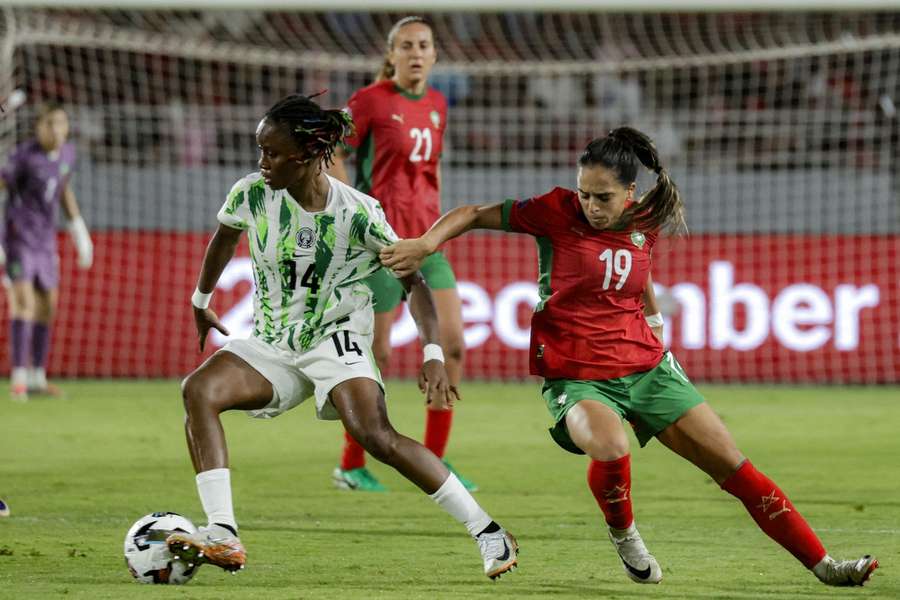Cheered on by a roaring crowd at Rabat’s Olympic Stadium, the Atlas Lionesses jumped to a two-goal lead early on with strikes from Ghizlane Chebbak and Sanaa Mssoudy, looking well on their way to claiming their first African title.
In a stunning turn of events, the Super Falcons mounted an impressive comeback to secure a record-extending 10th continental title, avenging their defeat against the North Africans. Esther Okoronkwo sparked the revival, while Folashade Ijamilusi and Jennifer Echegini contributed vital goals to secure a historic and hard-fought victory.
An overjoyed Madugu expressed great admiration for his team's performance against Jorge Vilda’s squad, who have now faced consecutive defeats in WAFCON finals.
"We are grateful to God for guiding us through this tournament. It was challenging to face the host nation, especially when they were ahead by two goals in one half," he told reporters during the post-match press conference.
"This was an incredible achievement, and I commend the players for their mental fortitude. We believed we could do it, and we kept pushing until we reached our goal.
"When we were down by two goals, we recognized that we were not executing our plans properly, and we encouraged the players to maintain their self-belief.
"We understood the minor challenges we faced during the game and the impact of conceding those two goals. For a team lacking belief, it would have been easy to give up and think the match was lost.
"However, we held onto our belief. At halftime, we spoke to the players both individually and as a team, reminding them of their capabilities.
"In the second half, they emerged stronger, performed significantly better, and ultimately, we managed to turn the game around and secure the win."
Unlike their sluggish performance in the first half, the African queens came alive in the second half, dominating the Moroccans in all aspects, aided by effective substitutions and tactical changes.
Coach Madugu defended his strategy, asserting that the slow start was never part of their plan.
"We had a clear strategy, and we aimed to avoid the very mistakes that led to the two goals we conceded," he added.
"Since we found ourselves having to chase the game, we had to switch to Plan B and focus on getting back into the match; without that, a comeback wouldn’t have been feasible.
"It wasn’t that we didn’t want to make adjustments sooner; had our initial plans been effective, those changes wouldn’t have been necessary. We always prepare multiple strategies for every game to adapt as needed."
Despite Nigeria’s remarkable dominance on the African continent, their success on the global stage has been limited. Their best FIFA Women’s World Cup performance came in 1999, reaching the quarter-finals in the United States.
More recently, they exited in the Round of 16 at the 2023 tournament co-hosted by Australia and New Zealand. The 61-year-old provided insights on how the Super Falcons can compete more effectively on the world stage while also enhancing women’s football across Africa.
Madugu added: "We need to concentrate on development in several crucial areas: improving facilities, effectively managing players, and providing strong welfare support.
"It’s vital to make the women’s league more appealing to sponsors, attracting more investment into the sport. With increased funding, we can train players more effectively and also enhance coaching through better education.
"We must continually evolve, as the game is dynamic and new ideas are constantly emerging."












 Links
Links
 Contact
Contact
 App
App


